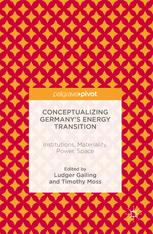

Most ebook files are in PDF format, so you can easily read them using various software such as Foxit Reader or directly on the Google Chrome browser.
Some ebook files are released by publishers in other formats such as .awz, .mobi, .epub, .fb2, etc. You may need to install specific software to read these formats on mobile/PC, such as Calibre.
Please read the tutorial at this link: https://ebookbell.com/faq
We offer FREE conversion to the popular formats you request; however, this may take some time. Therefore, right after payment, please email us, and we will try to provide the service as quickly as possible.
For some exceptional file formats or broken links (if any), please refrain from opening any disputes. Instead, email us first, and we will try to assist within a maximum of 6 hours.
EbookBell Team

4.1
100 reviewsThis is the first book to explore ways of conceptualizing Germany’s ongoing energy transition. Although widely acclaimed in policy and research circles worldwide, the Energiewende is poorly understood in terms of social science scholarship. There is an urgent need to delve beyond descriptive accounts of policy implementation and contestation in order to unpack the deeper issues at play in what has been termed a 'grand societal transformation.' The authors approach this in three ways: First, they select and characterize conceptual approaches suited to interpreting the reordering of institutional arrangements, socio-material configurations, power relations and spatial structures of energy systems in Germany and beyond. Second, they assess the value of these concepts in describing and explaining energy transitions, pinpointing their relative strengths and weaknesses and exploring areas of complementarity and incompatibility. Third, they illustrate how these concepts can be applied – individually and in combination – to enrich empirical research of Germany’s energy transition.